Lucy Knisley on Maple Juice, Tiny Dinosaurs, and Growing Up in "Sugar Shack"
I want readers to be able to see themselves in both these characters, whether they're interested in [romance] or whether they're like, No thank you.
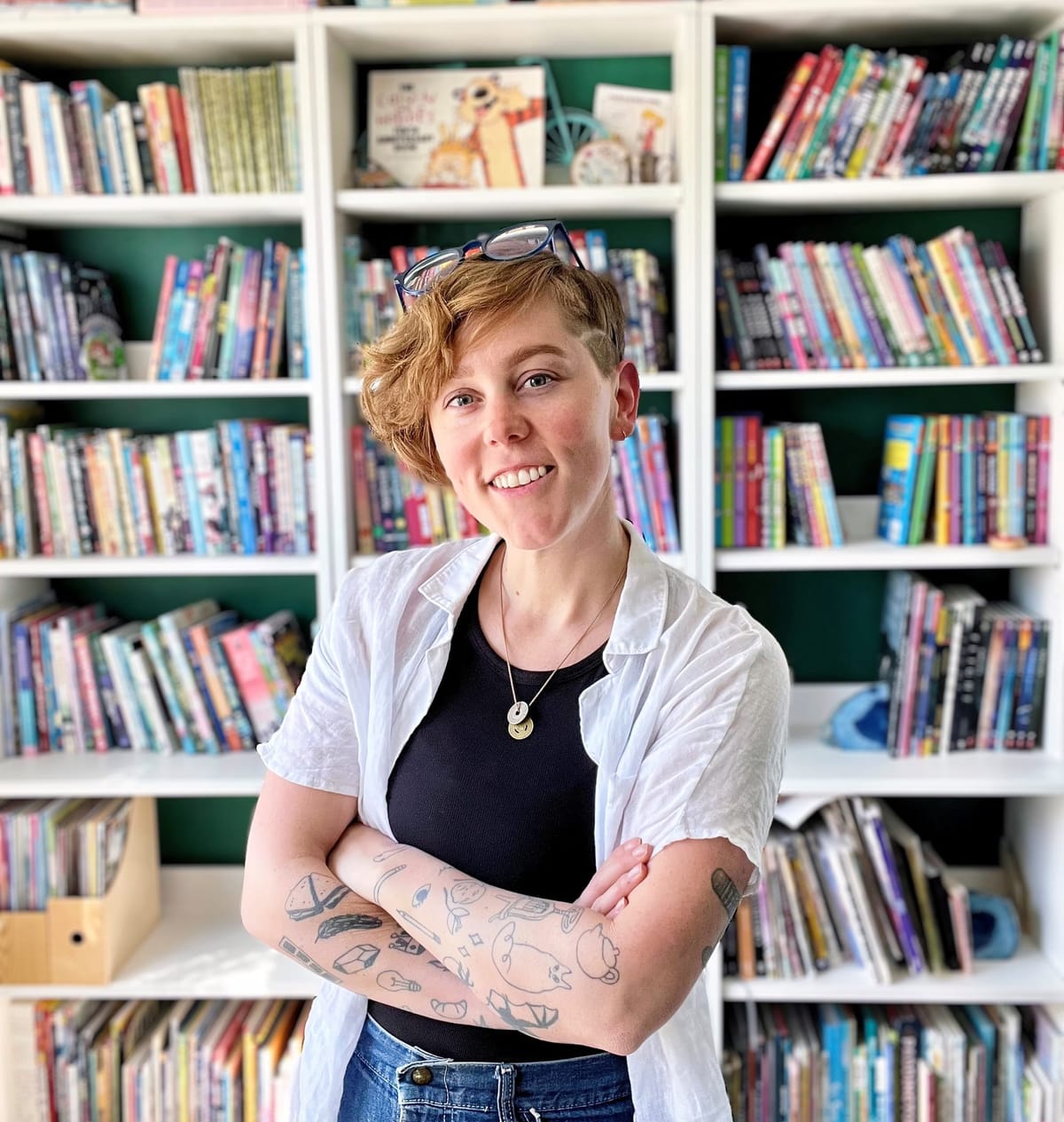
Back at Multiversity Comics, I had the opportunity to interview Lucy Knisley, cartoonist extraordinaire, about the second book in her middle-grade "Peapod Farms" series, "Apple Crush." Three-and-a-half years later, we've moved out of the long fall and entered the crisp and dangerous winter with "Sugar Shack," and I once again got the change to interview Lucy about it!
Her characters are a little older, a little wiser, a little goofier, and still have a lot of growing to do. To give you the tiniest peak into the interview, we got to chatting about everything from Christmas tree farming to lettering craft to barn cat primacy to more serious topics like rising hate in America and the loss of a beloved pet. Anyone who has read Lucy's work before knows she can make you laugh, cry, yell, and whoop in joy all within the span of four panels. She does the same with me here.
Thank you again to Lucy and Random House Graphic for the opportunity. "Sugar Shack" comes out August 5 wherever books and comics are sold (and, of course, your lovely local library 😸)
I'm curious. Is this the beginning of your kind of tour, of many, many interviews, or you kind of in the middle? Where are you in this process?
LK: It's just beginning.
Okay, so I get the fresh answers.
LK: Exactly. The ones I haven't rehearsed at all.
These are the practice ones.
LK: Right right right.
So it's been about three years since the last book came out. I remember you were hoping that this would coincide with the season, but I see that we're doing a winter book in the summer.
LK: Yeah. Didn't quite make it to the right time.
Is this your normal timeline for a book? Were there other obligations that came out in between? I'm curious what the timeline was for getting this one out.
LK: I did do two other books in between these. I did a picture book called "Ride Beside Me," and I did a collection of my cat comics called "Woe." So those, and touring them, and all of that jazz has sort of put off this one. Just a little bit.
Kind of overwhelmed? It's just a lot all at once?
LK: Yeah.
Is it nice to be able to return to the characters and all that?
LK: Definitely, yeah. I mean, it feels like I never really left them, because I was working simultaneously while doing these other projects on the book. I really developed it with the neighbor kids. I got my neighbors to be my sort of beta readers on the books, because I have this awesome street full of little girls.
How did that work out?
LK: It's great. It's really funny, because my kid's a huge reader, and of course, reads everything I do, but they didn't give me a lot of feedback on it, so I was sort of looking for more. And I have this great street full of kids that are really into graphic novels and are really excited to see the new book in the series.
What was really cool is that they've helped me with the last two books - this book and the previous book - and as I've been working on them, the kids have been growing up, and so I was able to watch them get older, and watch their reading taste develop, and see sort of where they were, kind of meet them there, which is neat because I get to age the book a little bit along with readers.
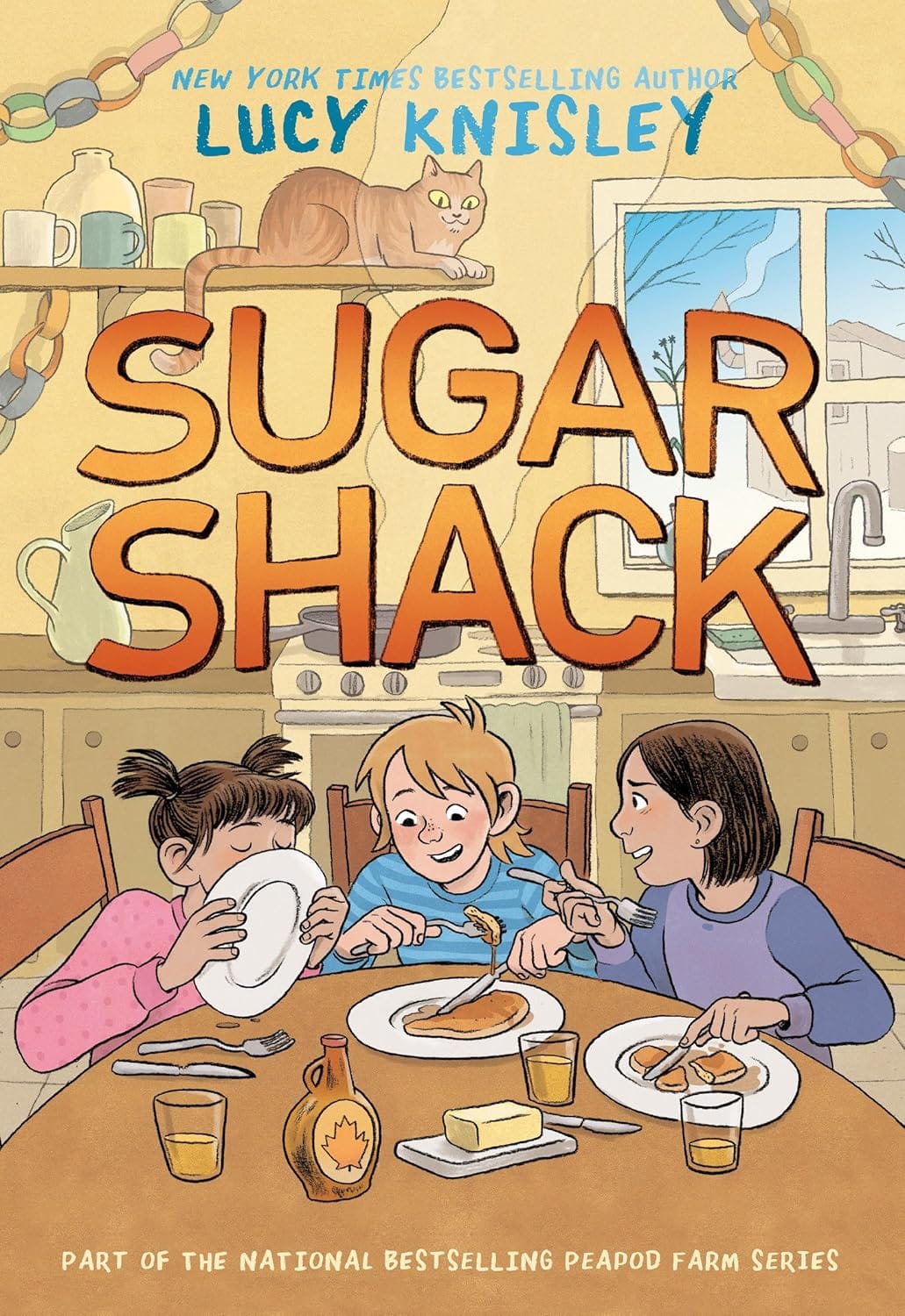
How did their input shape the development of this one?
LK: Well, first and foremost, I live in Evanston, which is about one, two towns over from Highland Park. While I was working on the script for this book, there was a shooting on the Fourth of July in Highland Park, and some of the kiddos in my neighborhood were present at the parade. It was an anti-semitic crime. It was a hate crime. And my neighbor kiddos happen to be Jewish. I've been going to all their bat mitzvahs and sort of watching them choose their Torah passages and stuff.
It really rattled a lot of the kids in my neighborhood and I really wanted to sort of incorporate that a little bit into the story, and have this story where the kids aren't just very different personality wise, but they're actually incorporating their upbringing, their background and their faith in this one a little bit more. So Andy goes through her bat mitzvah in the story, and she, she's not into it.
She's not excited about public speaking, and Jen doesn't really get it. She's not part of the congregation, but she encourages Andy, and they sort of come together and combine their family's rituals in the holiday season and that sort of thing. So I really wanted to kind of incorporate a message of love and unity, and try and bring these wonderful children that have helped me with these books a little bit of comfort in that regard.
I had noticed that there was a kind of an increased presence of, not religion specifically, but the Jewishness of traditions, of kind of the rituals in this third one.
I keep blanking on the name, and then I remember it as I'm talking. I keep wanting to call it Peapod Farms. I'm like, No, it's "Sugar Shack."
LK: It's part of Peapod farms!
Yeah! Which, I really appreciated as, you know, someone is Jewish. I don't see that a lot in books. It's usually somewhat cursory, or it is like a Hanukkah book or whatever. So that was meaningful to me to be able to read that.
LK: Great! That's wonderful to hear. I really wanted that to be part of the story, because I feel like the first one is really kind of finding your footing on the farm, and the second one is more finding your footing socially. The third one, I really wanted to talk about this more complicated idea of meshing families and how it can get caught on certain things, but inevitably, any kind of change and new development within the family is going to bring more complexity and beauty into the family life.
And you had Jen learning more about being kind of an older sister in this one. That's one of the running themes, actually integrating the families and becoming one unit, instead of these two units that are cohabitating.
LK: Right. And sort of trying to figure out your role in that.
Do you see this as more of the coming of age book in the trilogy, or do you think that's always been present?
LK: I think like actual coming of age, it's sort of an ongoing process, and we sort of find new ways to come into our own, even in adulthood. So yeah, I think the themes are generally a lot of the same sort of stuff that I've been thinking about: watching my own kid go through, watching the kids in the neighborhood go through. And, you know, there's never one moment where anyone's like, now I am an adult or now I figured out my family.
Oh, if only.
LK: It's kind of never ending. I wanted to watch the kids go up and down on this seesaw ride.
This was planned as a trilogy, yeah?
LK: It was sort of open ended. It still is. I may return to the characters at some point. I've got some other things in the works for now, and I'm looking forward to expanding some other ideas. I'm going to hopefully be working on a follow up to my book "Relish" from 20 years ago, so I've got some projects in the future that'll take me away from this world. But there's a possibility I'll come back to it.
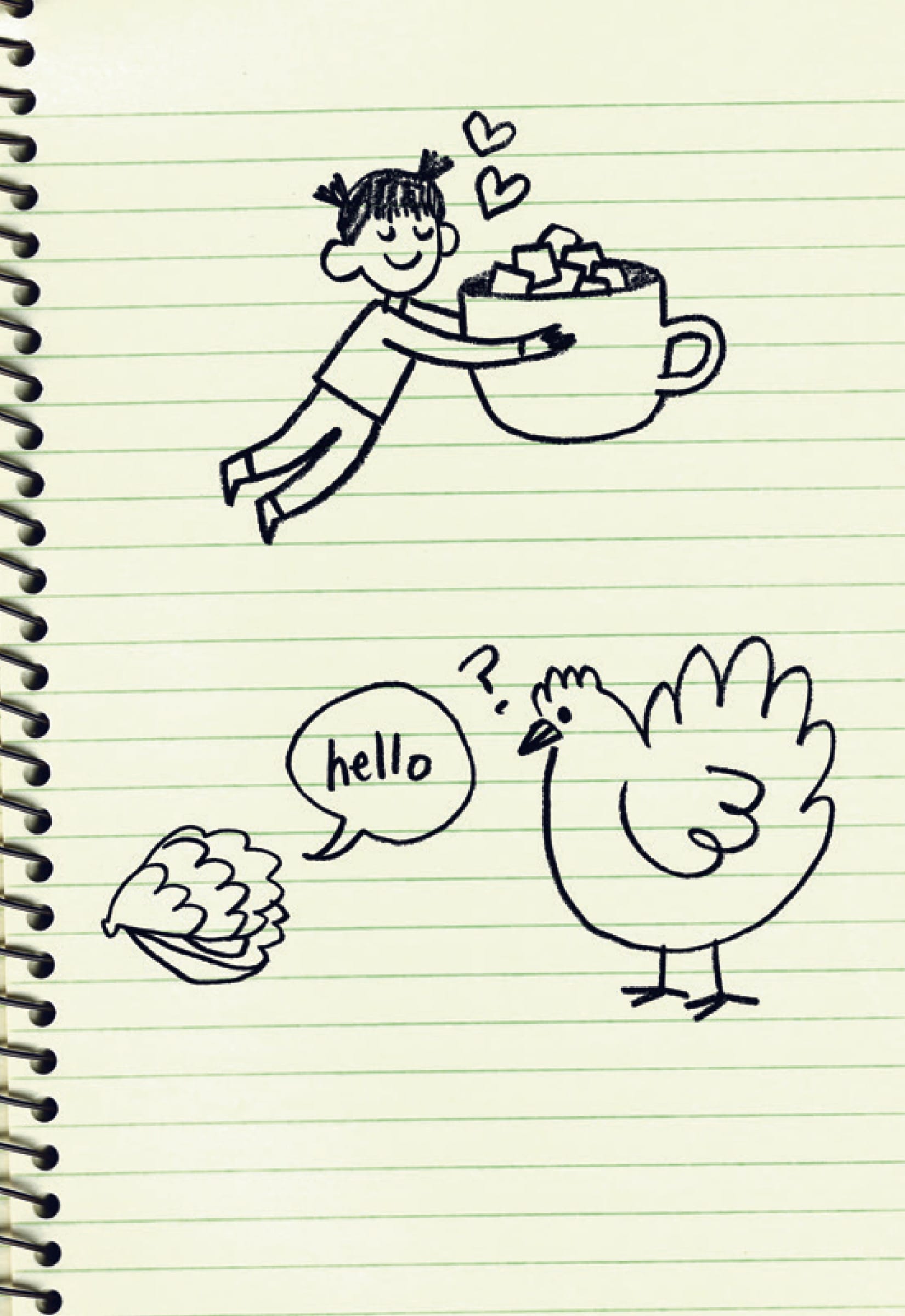
At the end of the book, you have this kind of epilogue? coda? where you're talking directly to the audience. You're giving some behind the scenes thoughts and discussions of the book. What prompted you to put that there at the end, instead of letting the book finish as it was?
LK: Well, I've got something like that at the end of all three of the books. I talk about, in the first one, how Jen has dyscalculia, and how I have and how it can really create a lot of anxiety around math and making change and that sort of thing. There's sort of an author's note about what's real and what's based on real life, and what's sort of individual to Jen.
Then in the second book, I think I talk about more farm life stuff and working on a farm at a haunted hayride and that sort of thing, and pointing out the similarities to the story in my life. So this third book, it follows that same structure of "here's what's real, here's what's not" but I'm coming at it also from having these books out for the last six years or so, and the questions that I get from readers and the comments that I get in reviews.
I wanted to really address those, because I get so many of the same questions at events that I do at signings, and frequently they're very angry at Walter. And I wanted to kind of explain I want that character to make you angry. That's the point. He's a very successful character in my mind, because I want people to be frustrated with him and to feel that rage that an adolescent can feel when an adult is being unfair.
Do you find you have to push back often when you're writing in characters that are more abrasive, that are more...it's not necessarily hateable, but that is the emotion you are hoping to evoke. And then people go, why did you do that?
LK: I did have to fight my editor on that one for a little bit. I really pushed back on Walter because, you know, he is a character that really drives home this adolescent frustration. I think in a lot of kids books, it's a lot more clear cut. There's good and evil, and you fight against the evil and that sort of thing. But in real life, there's people that are unfair and that are bullies, and you sort of have to deal with them in your life.
When you're an adult, you can kind of walk away and make your boundaries clear unless they're in a position of power over you in some regard, but in a lot of times when you're a child, you have these feelings of impotence and frustration and rage, and I wanted to kind of show that complication. In a lot of books for younger readers, I feel like that's something that's missing.
For me, when I was growing up, I really wanted books about divorce, because it was something that I was going through; I wanted about tomboys, because that's something that I was; and I wanted books about adults being unfair in a way that was more complicated. They weren't just like the evil stepmother that was trying to murder you. They were just somebody who was annoying, someone who was a jerk, you know, not somebody who was doing something illegal or maybe abusive, but somebody who you had to deal with and you didn't like them. I'm trying to make these books essentially for the kid that I was and what I would have responded to a lot as a child.
I noticed that there was less of that in this one than in the previous ones. Maybe it's because he has, you know, a much smaller role. He's a lot more in the background as, you know, Jen and everyone moves away and into their own spaces for a lot of it.
LK: There's two moments where we see the turning point with Walter, and one of them is where Walter's getting involved in a way that isn't something that Jen is going to respond to, and her mom actually intervenes. All of the people in the family are kind of learning what is working and what isn't and I think there's a really important moment where Jen's mom is like, that's not going to fly. You can't say that. This is going to cause a problem if you're behaving this way. So I think that's a really pivotal moment in the family where Jen recognizes that her mom is not going to let Walter treat her that way anymore.
Then there's a moment where Jen has a really dramatic experience with her sisters, and it's a real bonding moment, and Walter, instead of pushing this do your chores. Do your chores narrative that she's kind of been kind of struggling with, he offers to do her chore for her as a way of thanking her for having this moment and taking care of his youngest daughter. Those are the two moments where we kind of see Walter's relationship changing with Jen.
As we're talking, I'm noticing that this does have an increased presence of danger, and, you know, discussions of mortality, specifically with the farm animals. I can't remember if that was something that was in the previous books, specifically with the farm animals, but I know it's another piece of farm life. Did your editors push on including that at all? Or were they like, great. Explore this.
LK: We didn't really discuss it, because from the beginning, what I wanted to do with these books is tell a story, but also underneath that, teach kids about where their food comes from, because there's such a disconnect, especially in North America, between what kids understand about where their food comes from and the agricultural process.
My secret is that these books are actually all about food and comes from and I really want kids to understand that it doesn't just appear on the grocery shelf. That there's a process. Jen, representing the reader, she moves from the city. She has no idea about any of this stuff, and she has to kind of navigate this not always beautiful farm life, and it helps her to have a deeper understanding of food. So food is this common theme that runs throughout it.
Jen is an eater like me, and she really appreciates the food that they're growing and how fresh it is and how wonderful it feels to participate in its production. That's the most delicate and heartbreaking part of the agricultural process - the meat industry in agriculture - and I felt like I couldn't tell these stories without addressing it a little bit and talking about the environmental implications of meat farming, and how that's changing a lot now. People are becoming more aware of it, and part of that is rabbit farming, which is a more environmentally friendly meat product, but is also heartbreaking.
This is the reality that I was faced with as a kid. I knew meat farming families. I understood this relationship that they had, not to the extent that they did, but I wanted to bring that element into the story, because it's an important part of what I wanted to say about the agricultural industry in telling these stories about food.
Liking what you read so far? Want these delivered straight to your inbox or, dare I say it, early? Sign up for a subscription today! I've got two tiers: free (newsletter access, basically) and the paid one (early access, no interruptions like these, and whatnot.) Just $1.50 a month and you'll be supporting an independent writer.
If you aren't able to, that's OK as well. I'm just happy you're reading and sticking around.

On that, I've found very interesting that you had that segment about the Christmas trees and sustainable Christmas tree farming. Could you just talk a little bit on that? I guess either the industry, personal interaction with it?
LK: I grew up around a lot of Christmas tree farms, and I grew up in the Hudson Valley. There's ever present idea in farming about the product and what that product is giving to the consumer. And Christmas trees are essentially the most wasteful, because people use them for a month and then they're gone. At the same time, the alternative of buying a plastic Christmas tree that ends up in a landfill and, you know, doesn't support farming and agriculture is also bad. So I wanted to talk about it from an agricultural perspective, that these farmers do their best to steward the land and grow in a sustainable way.
In the book, the farmer says this is better than buying a plastic Christmas tree. You can bring it back. We mulch it, we use it to help grow future generations of trees. We grow fast growing trees, and they mature quickly so that we're able to use this land to create more in the future. It's just an interesting thing that I wanted to point out to kids that that this is part of how the land is used in agricultural, that it's not all for food, that that some of it is used for products like Christmas trees.
How much of your graphic novel process for kids. Have you found is telling the story, and how much is like modeling and teaching? Corollary to that, how much of that is your enthusiasm for the subjects that you are putting in?
LK: I think that comes from my relationship to Jen, because Jen is based on me, and as a kid, I was learning at the same rate as Jen. I was learning about farm life. I was meeting farmers and growers and better understanding the connection between my body and the food that I ate and the land that I was living on, and the people that stewarded that land. So I couldn't tell the story about Jen's development without the same kind of beats that I experienced growing up on a farm and becoming more connected to this land. I think that that's where that comes from.
It's very balanced, because as I'm telling Jen's story I'm like, Oh yeah, around that same time, I had to start going to 4H clubs. And, like, what did I get out of 4h clubs? And I mostly hated it, because, generally, I don't like clubs, and they kind of freak me out, but I did meet a lot of kids that grew up on farms, and really it was just in their blood, and they had this different relationship to farming than I did, and how interesting that was, to meet someone who grew up on a meat farm.
I was this really sensitive kid. I could never even fathom, like, an animal having to be killed and slaughtered for meat. That was just so horrifying to me. But it was their livelihood. It was their whole family's livelihood, and it really changed my perspective about those things and my relationship to the land.
Have you ever done a maple boil?
LK: I have done many maple boils. Yeah, we did it on our farm a few years and then we mainly help out at a friend's farm now, who has a more advanced setup for it. Like, we were doing it on a wood burning stove in a big pot. Our friend Huck's farm, he has an actual sugar Shack, and he has the maple run and it's a much more advanced setup and-
A couple stories?
LK: No, it's one story. So it's like, literally, a shack, but he has the equipment in there that's a little bit more advanced. So every year he has people help out, and whether that's monetarily, like people buy in and then they get a certain share of the maple syrup product, or they actually help out with labor, bringing in the sap or running the fire to boil it down. Then he has a big party at the end, similar to what happens in the book.
Very fun. I'm very much a townie. When I was younger, I went to a farm camp out in Pennsylvania for three or four weeks. They were a maple farm in the winter. It was very fun.
One night, we got to sleep in the maple shack, because it was lightning, pouring rain. We were supposed to be out on the out in the cornfields and spending the night under the stars. Not that night, but it was just so cool being around the equipment that wasn't really in use, because it's middle of summer.
LK: Nice.
But it was very cool getting to see a very slimmed down, small farm version of it in this book.
LK: I'm sending my own kid to farm camp for a week this summer, just a day camp, but we're going to visit my mom in the Hudson Valley. And so I was like, it's time. You gotta go to farm camp now.
I hope they enjoy it.
LK: I hope so too.
Best job: waking up for the chickens.
LK: Oh, nice. Okay.
I loved it, even though they did not like my hands. They thought it was part of the feed.
LK: Of course. They're monsters. They're tiny dinosaurs.
They are! They are tiny dinosaurs. You know? That just makes them cooler actually.
LK: True, it does kind of improve their cache. Yeah, as a kid that had to take care of chickens, they're not my favorite. They'd fly at my head with their talons out and stuff. So I'm like, I will respect you as a dinosaur, but please leave me alone.
What chore was your favorite?
LK: When I worked for the mushroom farm, that was pretty good. In the second book, Jen does some mushroom work, which is cool, because I kind of like bugs, like I'm not bothered by them, and that was fun to see all the bugs. It was kind of a cave, picking mushrooms. It felt very, like, woodland sprite. I enjoyed that. And then obviously berry picking every year is my favorite.
Every year, I would pick enough berries that I would get sick and not be able to eat berries for the rest of the season. So that's awesome. And then when I was a slightly older teenager, I sold cheese for local farms, and that was great, because I got to eat cheese all day at market. And I would definitely do that again.
Eating the cheese, or going to the market?
LK: Eating the cheese. [Laughs] I still go to the farmer's market and eat cheese. I do both of those things, but I'm not making any money at it anymore.
Awww. You make your money drawing the cheese.
LK: That's right, yeah.

Did you want to include more recipes in this than you did? Or did you hit the number that you set out to hit?
LK: I wanted to keep it kind of subtle that this was teaching kids about food, because I think in a lot of cases, non-fiction stuff gets very preachy and can kind of lose your reader. I was sort of trying to keep it on the down low that this was secretly teaching kids about food systems, but I think if I had included more recipes, it would have been more overt.
At the same time, you get to see the process of how they're making latkes at a certain point, and you get to see how maple syrup is created, and there's like, certain treats that you can make with them. I wanted it to be fun. I wanted the kids to see it as like, oh, that's something I could try, instead of like, oh, this is a recipe. This is something I'd need to study and figure out learn.
It did feel reminiscent of "Relish" when you got to the cooking segments. I was like, Oh, this is practiced. You know what you're doing. Those latkes look really good.
LK: Oh, God, I love a latke.
Do you make them? Or did you get a recipe from some of your beta readers?
LK: I definitely made them before. We have made them with my mom, who's a really good cook. It turns out I'm not that good a cook. It turns out, when you really love eating and you live with a chef, you don't necessarily like to cook for yourself, so now I have to cook for my family. I don't like it. I also lost my gallbladder in the course of having my kids, so now I can't eat a lot of things without getting a stomach ache.
Oh nooooo.
LK: I've developed, like, this anger about certain things. So deep frying stuff is difficult, which means lactose can be hard, so I can't...I don't cook them at home, but if I'm in a restaurant, I will definitely order them and make myself sick, and that's great. And like, if I would make myself sick, I don't want to have to work for it.
No, that's fair.
LK: Right? And friends of mine make them for me because they know I love them and we have this great diner in town called Mensches that does really, really good ones, and we'll go there for breakfast sometimes. It's good.
I wish I lived near that diner. It sounds...so good. Mensches!
LK: And then there's another one called Kaufman's that you can go in and it's like a takeaway. You can take them home and warm them up in your toaster oven and stuff. That's also amazing. Living on the north side of Chicago, we have really good, like Jewish deli food in a lot of places, and it's awesome. I'm a big fan.
I believe it. I'm thinking back to our to the previous interview. Are you still doing kind of the big Halloween decorations and parties, or has that kind of waned as the workload has increased?
LK: Every year I make a zine to give away - with candy. Don't worry, I also give candy. But I also make a comic, and that's the most extreme thing that I do for Halloween, because it's like a full comic, brand new every single year. Now we're known as the comic house, and I still have a bunch of weird, handmade Halloween decorations. It's my favorite holiday. But this year...what happened?
I was, like, sick, and my kid is getting older and wants to be more with their friends, and I'm not as much in the picture anymore. So we had a more low key Halloween this year, but I definitely made a comic. It's this series called Michy, and Michy is the lake monster of Lake Michigan, and she's like a kid. It's like a hyper local comic that my kid and I made up.
That's amazing.
LK: Thank you.
That's the best kind of additional Halloween gift. It's a real treat, especially because it is so local.
LK: I incorporated local businesses in it this year, where like, Michy goes to the local bookstore that's owned by some friends of mine, and meets up with other Evanston cryptids and she walks down Main Street and passes different places. It was really fun to do. It's very of the time and place.
As we were talking, I was thinking about one of the other threads that's kind of underneath this one is Jen's relationship to romance and how it is both omnipresent in the book and yet not the usual focus in, you know, a middle grade, teen related story. It was really nice to see all that nuance throughout. I wanted to see how much you wanted to speak on developing that, on portraying her navigating the social situations.
LK: Sure. I mean, a big part of that is about the differences between these stepsisters. Andy is interested in dating and romance, and Jen still just wants to read dragon books and not have her relationships all messed up with her friends and that was definitely the case for me. I want readers to be able to see themselves in both these characters, whether they're interested in that stuff or whether they're like, No thank you.
I wanted Jen to be able to be projected upon if a kid is having certain feelings, if they're feeling like they're alienated by that kind of stuff in various ways, I wanted Jen to sort of be a sounding board for that. So Jen's relationship to romance, she wants to just be friends. She's interested in her friends and her family and her books and that's sort of what she's focused on.
And you can see Andy be more engaged with that. There's no negativity to it. There's a lot of positivity to that. Like, I don't want to shame her, but that was definitely the case with me and my stepsister and I wanted to portray that tension and that difference of personality because so many kids around that age of 12 and 13 are navigating that.
It really makes me so interested to see how kids are responding to that now. I grew up in the 90s, which was, compared to our modern age, very hyper sexualized. There was all of the media that was just sort of blasted out. Everybody was watching, like Friends, and Sex in the City was everywhere, and that sort of thing that was in the zeitgeist. Sex was a real part of my adolescence. It was the American Pie movies and stuff like that which was just constant on my mind, and I felt really alienated by this stuff.
I was totally freaked out by it and at the same time, there's a lot of pressure to adhere to these social norms. It's really interesting to me to see kids now, in this age of streaming, where everything can be hyper curated to them. They're not having the same kind of exposure to adult sexuality the way that I was, for better or for worse. I feel like it's created a different culture for kids, and they have all of this media that's just for them.
So Jen's relationship to romance is much more common now. Back then, I felt like it was kind of unusual. I was the only one who wasn't, like, I have a favorite ~guy~ on Friends that I want to date. Now I think the kids are kind of bored with it, but at the time, I wanted a story about a kid that was like, No thank you. I'm not ready yet. I would like to just continue to like play and read.
Do you think you'll see readers relating to that, both in terms of where they are in life, but also in terms of maybe, you know, discovering something about their own sexuality through that?
LK: There's this point where Jen meets an older kid who's working at the farm. And the older kid is actually one of the meat farmers and is talking about the process of meat farming from an ecological point of view. This character is so cool in Jen's mind. There's stars surrounding them, and it's the sort of androgynous character that's really sort of tomboyish in various ways.
I think that that moment, that's kind of my ring of keys moment, the Allison Bechdel moment where young Allison recognizes an older butch dyke who's wearing this ring of keys and it's this really impactful moment where she's like, I see you. You see me. We're the same thing. I think Jen has that moment where she connects with this sort of androgynous tomboy, older, cool person that maybe doesn't adhere to the sort of romantic standards that she sees elsewhere.
So that character is a really important moment for Jen and I hope that people sort of see that as a reflection of what they might be going through. It's open ended, whether they want to see Jen as being attracted to this person or wanting to emulate this person, like, great. Either way, that's fine. But then I also wanted to model different relationships. So there's another farming couple that's gay, and they talk about their early relationships and how they got together because Jen's parents are heterosexual and we see a lot of them so I wanted to kind of model that in the farmland, there's people of all types and so Jen is like seeing different kinds of adults throughout the story, and sort of trying to understand what kind of an adult she wants to be.

I want to ask you about the journal pages that we see Jen writing and drawing, and kind of the letters throughout. Could you refresh my memory? I think they're present in the previous books as well. Correct?
LK: All three, yeah.
But none of the other ones end with the book closing, right?
LK: I actually thought all of them did, but I can check.
Each one's a new notebook, yeah?
LK: Or just, you know, that's the end of this story. Just putting it aside.
Because they it feels like from the ending this is kind of like the closing of a chapter, the closing of a book. I was curious how you were creating those pages. Were they just your notebook that you then photographed? Were they drawn in? I know that the letter at the beginning is drawn directly onto another page.
LK: Right.
I love the chicken letter.
LK: Thank you.
So good.
LK: The Notebook is the same notebook I've been using all three books, and it was an old notebook that I got from my grandparents house. When my grandparents passed away, I got a whole bunch of their stuff and nobody wanted, like, old blank notebooks but it was a notebook that my grandfather actually used to keep notes about his garden. I thought that was really cool and this connection to my farming history, sort of, but it was also really similar to the kinds of notebooks that I would used to draw in as a kid.
Because I had - I still do - like, notebook anxiety, where you get a really nice sketchbook or a notebook, and it's super pretty and hard bound and the pages are all bound in there and everything, and you're just like, I can't put anything in this because it's too nice. It's too nice! I will immediately mess it up.
So when I was a kid, I would just draw in spiral ring, dollar store notebooks or, like, composite books and stuff. And that was great. I wanted to bring that piece of authenticity to Jen so her drawing journal, sketchbook, is this like Dollar Store notebook. so it's pages scanned directly from there.
There was this weird thing that happened with the second book, where it was the height of the pandemic when I was drawing it, so I couldn't reliably go to the art store to buy supplies. The first book I had drawn all in pencil on paper and it's really tactile and stuff. So for the second book, I was like, I guess I have to learn how to draw digitally now. And I hated every moment of drawing digitally. It's not for me. It drives me insane, but it does help streamline the process. For the third book, a lot of Jen's drawings are drawn digitally and then placed onto the scanned paper.
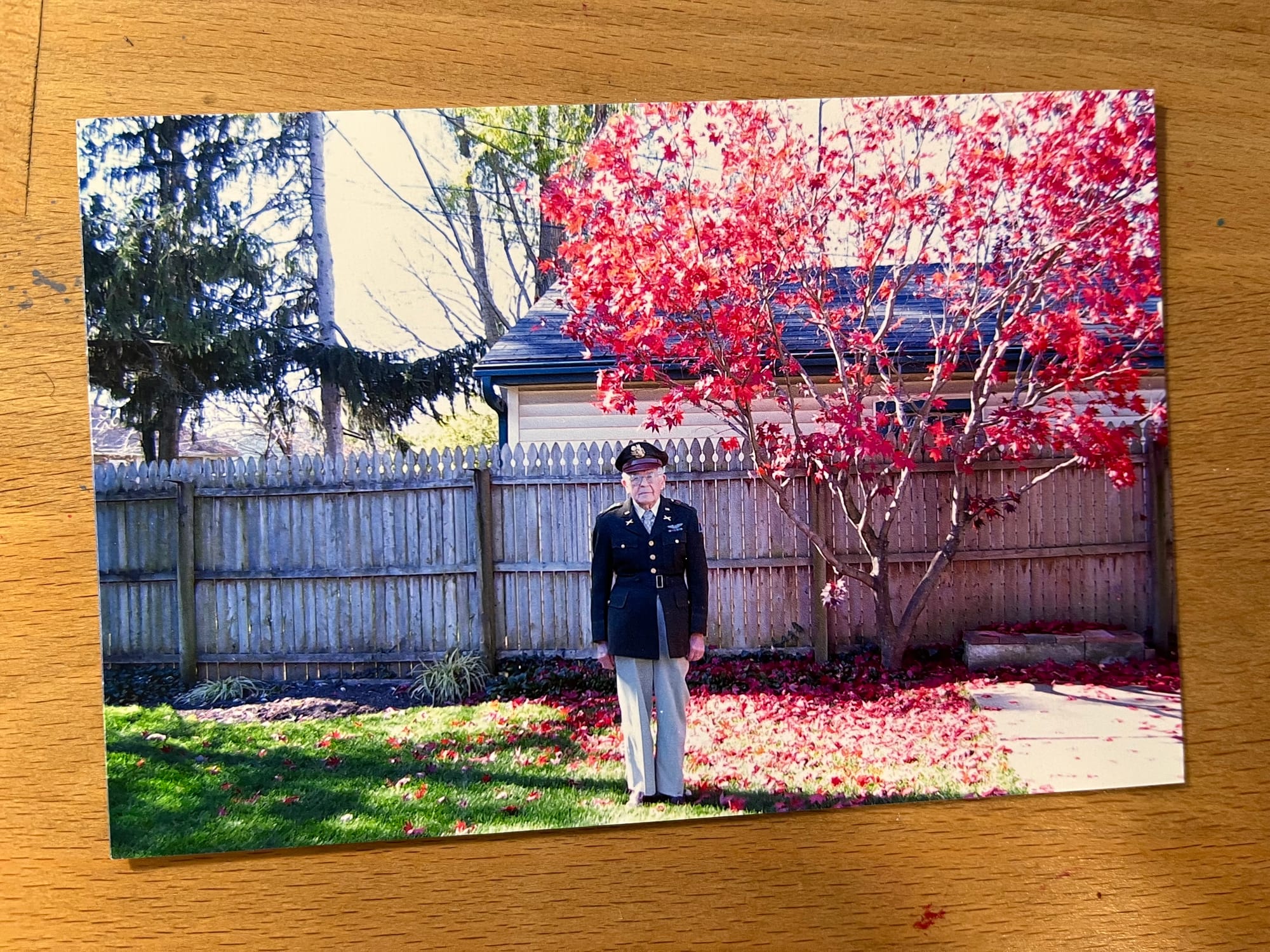
Huh. So all the sketches in between the chapters there were, you had a photo, and then you kind of overlaid them on top?
LK: Yep. The first book. they're all right in the notebook, but I was worried about running out of paper.
That's fair. Probably helps keep the fidelity of the drawings a little bit.
LK: Yeah, little bit. Same notebook!
What were some of your favorite of the doodles?
LK: I love to draw chickens. They're tiny dinosaurs. That's always fun. I love to draw cats. I've always really liked drawing cats. I draw my own cats 50 times a day. So there's lots of cat drawings and when I signed this book series originally, the editors were all like, make sure that there's lots of cat drawings in these stories. And I was like, got it. I will get right on that.
There are some cats in here. There're the barn cats.
LK: No farm complete without a cat.
Such cute barn kitties. They're always hiding.
LK: I always had cats growing up that were just like various degrees of wild and angry.
What were their names?
LK: I had Liza, was an early one. All of my cats have been barn cats up to my city life as an adult, but Liza and Watcher as a younger kid, and then Pip and like, sometimes farm cats will get sick, and the farmer won't help them. I actually abducted Pip and her litter mates from a farm, because the farmer was kind of like, yeah, the kittens are sick, but that's farm life and if they die...oh, well.
And I, as a young teenager, I was like, I'm gonna take those kittens, and I took them and took them to the vet and got them all homes, but I kept one of them for myself. She had brain damage at that point because she had had an infection for so long. She was a little crazy, and would like attack anybody, anywhere, all the time. She was just like an angry feral animal. We had her for like, 15 years. She had a good, long life of being a miserable meanie to everyone she ever met.
I noticed, just in terms of the way you draw the barn cats, and the way you drew your cat in "Woe!," the style is very different, but still very recognizable. Did you want to bring any of that dynamism, and I was going to say just full throated yelliness to the Barn Cats at all? Or were you like, no, I want to keep it to the to the style I've kind of set: more reserved, but still very emotive.
LK: Right. Like they couldn't become characters, because it would totally turn the story in a different direction. If I was reading this book and any of the cats portrayed certain specific behaviors, I would be like, I want to know everything about those cats now. That's the kind of reader I am. And I was like, yep, I have to keep this very "they're cute and they're here," and that's it. Whereas the story and the drawings of my actual cat in the book "Woe!," it's a specific cat, and you get to follow her and know her throughout the story so she gets to have all kinds of weird emotions and characteristics.
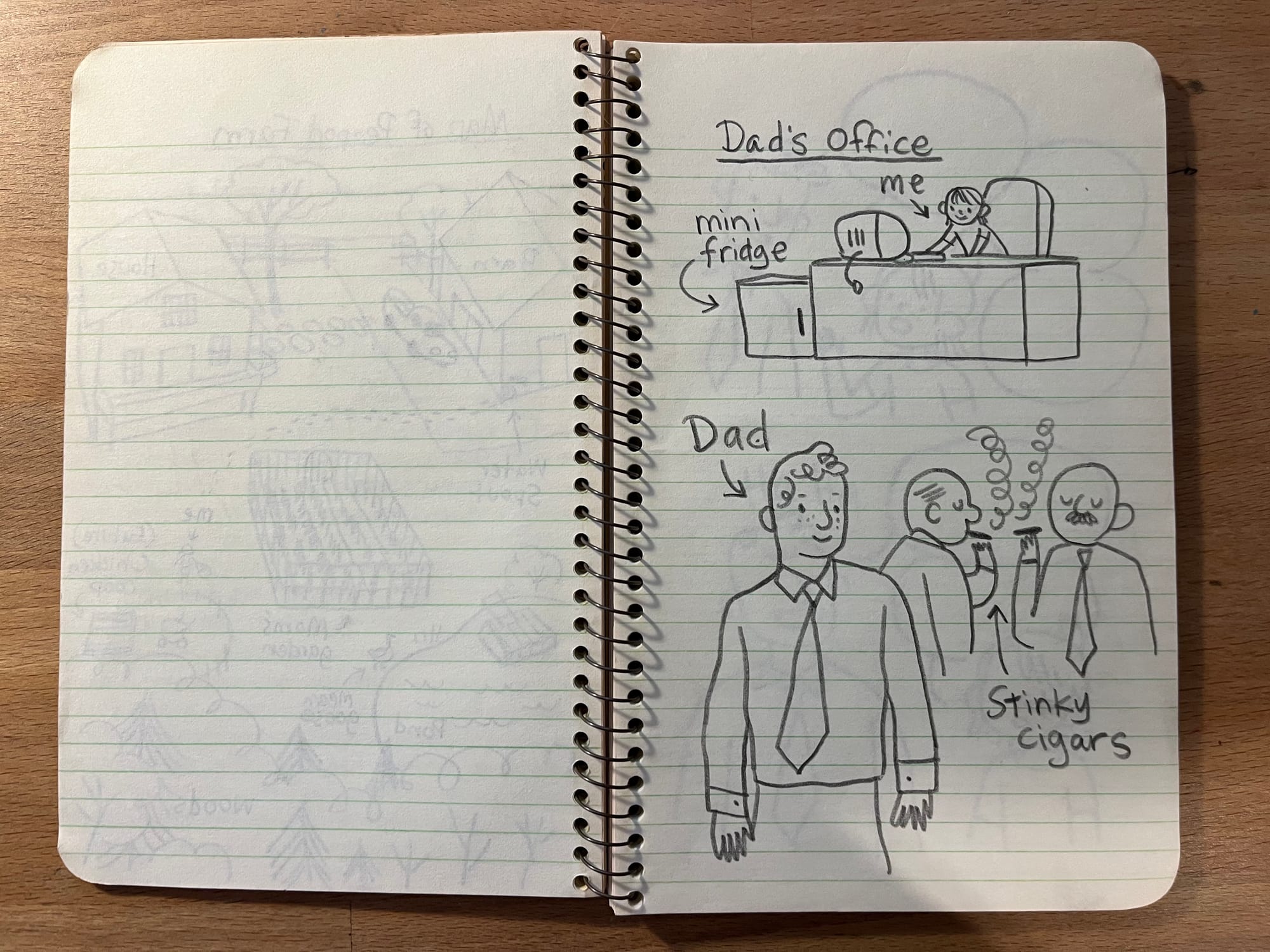
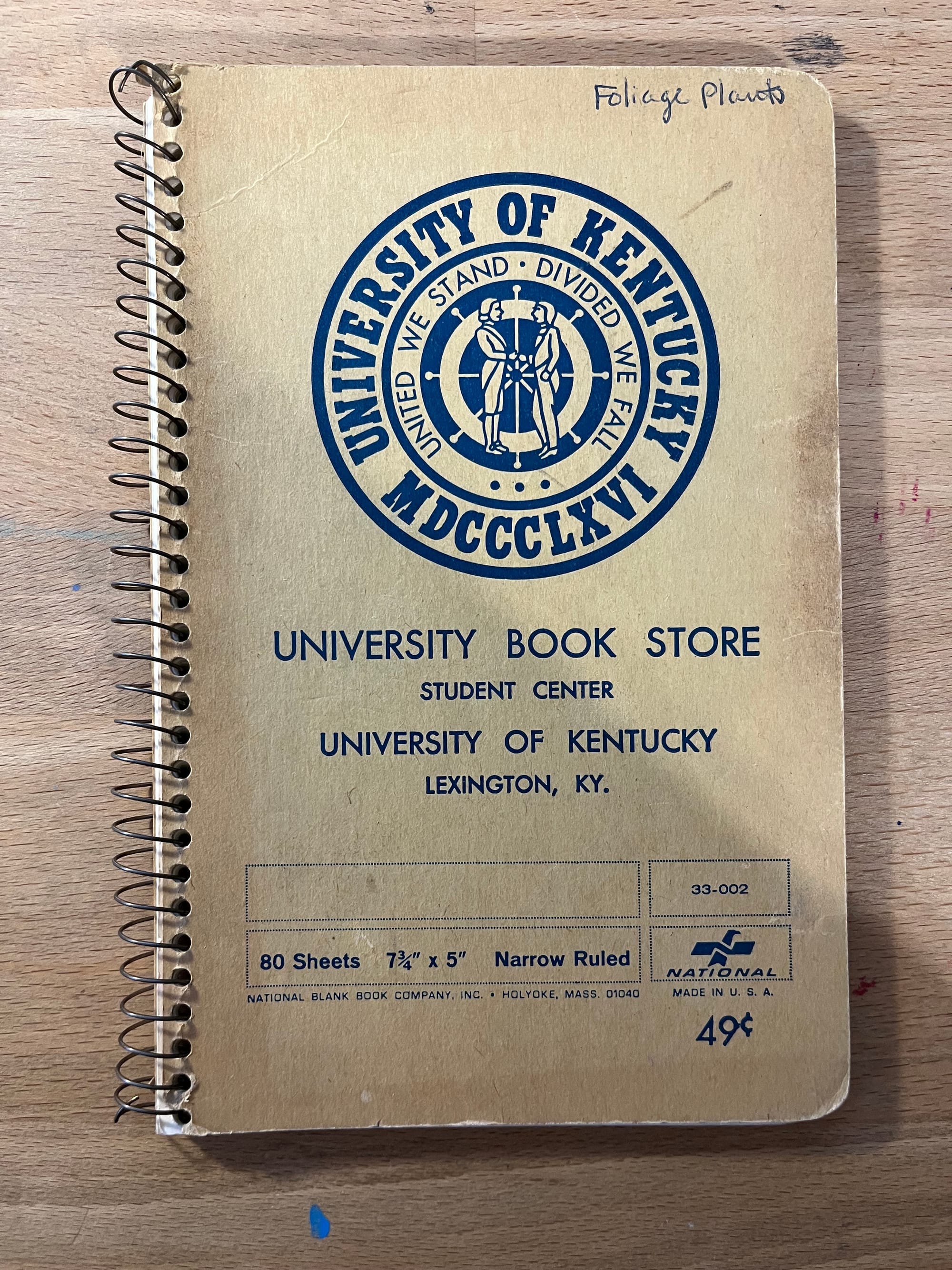
No cats but it is the notebook.
Are you interested in fashion?
LK: No...
Because it just stood out to me, the one or two segments just talking about fashion. I was like, did you have to do any research? Or were you like, I know exactly what kind of fashion I'm going to go into here, or was it I'm going to take these old fashion comics and be like, here we go?
LK: Ohhh, the part with the love comics stuff.
Mmhmm.
LK: Yes. So that's partly inspired by...before my mother dated real life Walter, my mother dated this man who was a golden age comics collector, and he had long boxes filling his attic. He really, truly tried desperately to get me into the stuff that he was reading and it was very traditional capes and tights. It was Marvel and Spider-man and all that. I was like, not for me, but thank you. Like, I appreciate it, and I love a comic shop, but this is not really what I want to read.
And he tried and tried to get me into this stuff, and I was not interested until - he did get me into the "Harbinger" series that was, like my one superhero series that I liked because I really liked Zephyr, who's a heavier girl character, that in the 90s was unheard of. And I was like, she's cool. But then he tried to get me into these old comics by giving me love comics, giving me these old "comics for girls" kind of thing, that we're all these fashion, love, like "I want to be with him, but it could never be" kind of things and that was totally the wrong direction to go with me, where I was like, What is this?
I have a bunch of these old stories that this guy tried to sell me on and I thought it was so funny, this idea of Jen being exposed to that and how Andy would react to it and how Jen would be like, yeah, those exist, I guess? Especially because Jen is into
Did you consider ever like showing a couple pages as pastiche in the book, like of the love comic? Which one is it called? "Lovey?"
LK: Yeah, "Lovey." Well, there's a series in the style of these "Lovey" comics, because they have this conversation about them in the newsstand, which is where they have to go to buy comics back in the day. Andy really responds to that so throughout the book, there's these moments where various characters are imagining what they're going to be like as an adult.
So there's another character that's really into like anime and Japanese manga and that kind of stuff and he imagines his adult life in that style of comics. Andy imagines her adult life in the more "Lovey" style of comics, because she recognizes them, and she's like, that's what I want to be.
There's this whole series in that weird kind of 1940s, 50s style of a woman in a tight skirt. That's Andy's ideal of being an adult. Jen throughout this is like, I have no idea. Maybe I'll be a dragon, sort of thing. But I like this idea that they would be imagining their adulthood in different types of comic styles.

And you did that too with the fashionable clothes panel. That was what caught my eye. It was so different from the rest of the style on the page. I'm skipping through trying to find another page, and I came across the six by 6.66666, repeating. I love a good math joke. Not an amount of candy!
LK: Yep. Not a number. I still don't.
You still don't believe it's a real number?
LK: No. my kid's really into pi now, and they, thank God, inherited math skills from someone other than myself in my family and has this affinity for numbers that I do not possess. And so for like, Pi Day, my kid was like, let's recite pie at the dinner table. And I was like-
Oh no.
LK: What is this creature that I've made?
Someone who likes numbers.
LK: Yeah, I'm very proud of it and impressed by it.
With the inclusion of all the Bat Mitzvah preparation and training, were you nervous at all about putting it down on the page? Did you feel like you had a very good grasp of it?
LK: I'm as nervous as I'm going to be because everybody has a different experience, culturally, of their own religion, and of course, people get very sensitive about it, but my closest friend in high school is Jewish, and she went through her own bat mitzvah, and she had a similar experience to Andy, where she was really, really nervous about speaking in public. I reached out to her before I wrote this, and I was like, hey, I really would love to talk to you more about what you were feeling about this, and what the process was for you and what helped you, and what you did.
She had a very similar experience to Andy, where she was, like, I don't want a big party. We'll just go to the rec room afterwards, kind of thing. Actually, the rabbi in it is based on my friend Nelly's actual rabbi in real life because she was like, this guy was really important to me and getting through this experience. Some of his lines were directly taken from stuff that she told me about. I really tried to be very sensitive to it.
We went back and forth a lot. This was definitely the most research I've done on any of these books before and it was just sort of grilling my friend. She was very, very generous with her experience, and wrote me these long, long emails all about it. It's really cool, because she sort of fell out of touch with her faith as an adult and then got really much more back into it in the last couple of years. It was really cool for her to revisit that at the same time that she was reconnecting to it and bring me in such a way. That was really lovely of her to offer that to me.
I also did not want a big party. Those scare me.
LK: Yes.
If anyone wants the quintessential movie about this, Keeping Up with the Steins is very accurate to how a lot of, like, rich, Long Island Jews, will do their big parties. Imagine that kind of scaled down, and that's a lot of the standard b'nei mitzvah parties. And I was like, No, thank you. Just give me bagels. Just give me some ice cream. We'll be good.
In those conversations, did you consider including any of the prayers or of the parsha or were you like, I want to stay away from that?
LK: I was talking to my friend and I was like, what do you think? What passages do you think would be the right thing for this? Like, I sent her the whole story, and I was like, what do you think would be good for this? And she was like, she could use mine. This is my birthday. If Andy wants to have the same birthday as me, this would be what she would be studying and we went through it all.
Andy at one point references, specifically, the passage that I chose is this one where the people are in an in-between place. And I was like, that's perfect! That's awesome. That's exactly the theme that I'm going for, that people are sort of lost and trying to find their way. We talked about my friend's passage, and she was like, this one would be really good, but this one would be... so, yes, but I didn't want it to suddenly be like, alright. Now I am teaching you about something I am not a member of.

I wanted to be culturally sensitive to that and show the symbology, have this spiritual moment, and have this connection of Jen, watching her sister fulfilling this role for the first time. I thought that was really cool. As somebody who's now experienced it multiple times, watching these kids go through this and being so impressed with their poise and their study and having this real profound moment where I get a wonderful moment of inclusion into this faith that's not my own is just so lovely. I wanted to show readers that that they could they could have a similar experience of watching somebody engage with a faith that's not their own and have it be such a positive experience.
Do you know what denomination the shul in your area is?
LK: It's very reformed, very liberal reformed. So that's my experience of it. That was my friend's experience of it, who helped me a lot with the book. So it's very, very, very liberal reformed. I actually have this other friend who has a book. His name is Lonnie Mann, and his book is about being gay and growing up in more conservative orthodoxy, and we've talked about this as well, and what his experiences were there. That's a world that is a lot to take on, and something that I have not a lot of first hand experience, sort of being welcomed into.
Yeah, it's not always very welcoming.
LK: So after having that talk with Lonnie I was like, I'm gonna go with the synagogue that I am familiar with, and that's this one.
And I think it fits Andy's upbringing and her position in the previous two books. It flows very naturally.
LK: Good, good. I'm glad to hear it. It's clear that, like, Andy's, mom's a little more observant, and Dad is, like, completely lapsed. I wanted to kind of show that dichotomy as well.
It was a little bit of a leading question, especially the prayer one, because sometimes I will see, like, full prayers written out, Personally, that makes me a little uncomfortable, which is weird, because it's representing the prayer. But just seeing God's name written out...it creates this strange friction. Partially upbringing, partially not. Is Lonnie's book "Gaytheist?"
LK: Yes.
We've got that in our collection.
LK: Oh, nice, yeah.
As you can tell, that's that was a big in for me on the book. It was nice to see. The ending, it did make me cry.
LK: The end of "Gaythiest?"
Oh, no. The end of your book.
LK: Oh, good! But "Gaytheist" for sure. Like buckets.
I'm afraid to read it. I'll be honest. I've skimmed through a little. It makes me nervous.
LK: There's a lot of religious trauma and yeah, it's a bummer.
And I think that I'm afraid that it's going to be more of a bummer for me as someone who is slightly more observant. It feels like we failed him. In some ways.
LK: Yeah. Well, Lonnie is still very culturally Jewish, and I think he has been someone who's been so welcoming to me, to sort of teach me about this culture that he grew up in. But obviously he's got a lot of religious trauma, and didn't have the greatest ending experience. But had grown up in a situation like we have here in Evanston, I think it would be a different story, unfortunately. It's a really interesting book and Lonnie has a wonderful adult life now, and is very loved and gets to live in Tokyo.
Oh dang.
LK: It is rough, not on Judaism in general, but definitely on orthodoxy.
Yeah, yeah. And, Lord knows, there's a lot that deserves it. It deserves the rough treatment. To turn back to something a little less fraught, how was it drawing all that snow?
LK: It was great because the last two books have been in, like, spring, summer, and fall, and there's a lot of foliage to draw on a farm. And so I was like, the next book that I draw in this series is going to be the winter, and it's going to be like snow and bare trees, it's gonna be so much easier to drop. But it's not really. It's all kind of the same. But I appreciated that I wasn't drawing a million blades of grass in this one or corn stalks. The second book. So many corn stalks. Oh my god!
Do you regret picking corn fields to draw?
LK: I don't regret picking cornfields. I do regret that I'm something of a Mennonite when it comes to technology and art and I just...feel that I resist it so much that I don't learn these tricks that everybody else knows.
I was complaining online about drawing a million cornstalks after the fact of drawing a million cornstalks and my friend Dylan Meconis, who is a wonderful, very talented comic artist and writer in her own right, was like, why on earth did you not make a cornstalk brush? And I was like, what are you talking about? Like, a brush is, like, a thing? What do you...A cornstalk brush? And she's like, oh, yeah, it's really easy. You just make this thing, and then it repeats, like, cornstalks, and you just go brrring and then it's a million cornstalks. And I was like...I can't believe this exists. But of course, it was after the fact.
For anyone else who wants to do this, because I heard someone else talking about a grass brush, and I went, wait, you can do that? So for anyone who wants to do something like that, how does that work?
LK: For someone like me, that doesn't know how to make them, and you search "grass brush download," and then you buy it from some genius person that's made this thing and get it. I know now to do this thing, but I still don't really have a handle on digital drawing in that way; it always kind of looks weird to me and doesn't feel natural.
I always tell this Linda Barry story that her novel "Cruddy," she started writing it on a computer, and she'd like, write a sentence, and then she'd be like, No, that's not perfect, and she'd delete it. And then she'd write two sentences, and she'd be like, I don't like that. She'd delete it, and it was too easy for her to edit it digitally. So she went to the dollar store and she bought a 10 pack of those yellow legal pads, and brought them home. She used her art supplies that she was familiar with, which was a Sumi ink dip brush pen, like the ground ink and stuff, and she would dip her brush pen in and then she would started writing out this novel in cursive on these yellow
Wow.
LK: Because it was a comfortable tool for her, and she wasn't just able to delete it. She had to live with her mistakes. That was a real lightbulb moment for me when I heard that story. Because I was like, that's exactly how I feel about exactly how I feel about using traditional techniques and art. I have to kind of live with the mistakes that end up on the page and do my best to sort of just go at it, and that's exactly how I draw. Digital drawing has never felt good to me, because I'm like, that line is imperfect. I'm going to erase it. No, I don't like that one either. I'm gonna erase it.
I can imagine it's pretty hard to get over that. I do the same thing while I'm writing. I'm like, Noooo. But my handwriting is so bad I refuse. It is illegible. It is chicken scratch, just tiny dinosaur scratch.
LK: You could probably do like a voice to text thing where you just recite an entire novel out, that would probably do the same sort of effect. But yeah, I definitely am too much of a perfectionist with my handwriting, and could never do that, because it would take me forever to just perfect. box. lettering.
Is that how you do your lettering for these?
LK: I do my lettering digitally for these, because in 2017 I was working on "Kid Gloves," or maybe it was "Something New." "Something New" is like, a 300 page book. It was the last book that I ever hand lettered. It's 300 pages. Tiny text. I hand lettered it all because I was holding myself to the standard of being like, "No, it's not real comics unless I'm hand lettering it." I blew my hand out so badly. I couldn't draw for months afterwards.
So I was like, why would I just do that? I wasted like months of my drawing ability doing something that a font can do pretty well these days. So no, I do not hand letter those comics. I hand letter all of my sketchbook comics, so my cat comic book is all hand lettered, that sort of thing. I'm trying to save my hand for drawing.

Yeah, it makes sense. How do you do the lettering, like specific, you know, with balloon placement and the more interesting lettering than just the standard dialog. What's a bit of your process?
LK: The process I do is I go from script to something that I call a maquette. It's a word that I took from animation, so it doesn't really even make sense here - I've heard other people call it a text layout - where I generally know the size of the panel that I'm going to use to tell the story. I'll lay out all of the panel sizes with no images in it, and I'll place the text in there so I know how big I need to draw the speech bubbles, and I know where to place the characters in relation to the text and that sort of thing.
The maquette is what I call just the panel borders and the text, and that allows me to integrate the speech bubbles more with the art, instead of kind of slapping them on top of it, and I have a font of my handwriting that I use that I had made.
Did you use that for the "It's snowing" panel as well?
LK: No, all of the emanata kind of text is all hand done.
Is that what that's called?
LK: Yeah, anything in comics that's emanating from the characters? It's taken from old illuminated manuscripts and medieval paintings where an angel has like a halo kind of thing. That's emanata. But in comics it refers to the sweat bubble, the sweat drop, or surprise lines, or electricity coming off of something; it's all emanata. So text emanata probably has a different term, but that's sort of what I think of it as.
There's another word for the stuff that shows up in the margins...marginalia! Marginalia. There we go.
LK: Yeah! There was an event. I missed it. It was on Friday here in Chicago that was "Cartooning the Medieval" and it was bringing medievalists and cartoonists together to talk on panels about imagery and stuff. It was so cool as a concept and then I couldn't go because I had child related, end of school year stuff so I didn't go, but there were a lot of really good cartoonists involved. I didn't know any of the medievalists. I thought it was a cool idea, because there is a lot of that imagery that carries over.
Is there any? Are there any medieval imagery that really sticks out to you? I know for me, as always, it's the "Have you ever seen a cat"
LK: Oh, god, yeah. I talk about that in my cat book, in my "Woe" book. This series of medieval cat paintings and how they all look like the person has never seen a cat in their life before, but it also is so obviously a cat. Like you look at it and that's a cat, even though it looks like it's got a human face on it or something. I think that's a perfect representation of cat art, because we've all tried to draw a cat, and nobody has succeeded. There's never been a representation of a cat that is is accurate to the cat because they're impossible to capture, and it's why we keep trying. It's why all of us cartoonists are constantly drawing our cats.
Are you drawing your cats over on Patreon?
LK: I do draw my cats frequently on Patreon. They are young cats. So they're very hungry and chaotic, and so they make for good comics. They're not known to me the way that my old cat was. So she was very familiar to me, and she had, like, a real voice in my comics. So these two, I've only had them for like, eight months now, and I'm still learning their voices. I think my cat comics about them will increase in frequency, but for now, it's mostly portraiture of their various chaotic goblin activities.
I have to say, "Woe!" did leave me in tears at the end.
LK: I have been yelled at multiple times for making people cry with that book.
That's good. I think, as you're saying with this, it's a part of life, and not everything can be easy and happy and simple all the time.
LK: True. And you know, she's an old cat at the beginning of the book. You're kind of anticipating what's going to happen at the end of the book. But also, I will say, she dies, spoiler alert, at the end of the book, in the exact way that I could hope to die. Peacefully at the end of a long, happy, very indulged life, surrounded by people weeping so hard that they are like struggling to breathe. So I really do think that she did it.
She made it. She lived the dream and it's not a sad ending for her. It's a sad ending for all of us who are left with our dead pets, but one hopes that we can have such a blessed end to our time.
My final question: Of the recipes that you included in this, which ones do you find most personally meaningful?
LK: There is a moment where the family is together working on the maple boil - which is nice, because a lot of times in the books you see the various tasks around the farm, but either the kids are doing them alone, or Jen is doing them alone, separately.

There's this moment, where the whole family is participating in this one task of doing the maple boil, which is really cool because it takes multiple people - you have to collect the sap and boil it and keep the fire going and stuff - there's this moment where they get to have the maple juice. There's probably a more technical term for this, what I've always called it, the maple juice, before it is congealing into maple syrup, when you boil down the maple sap and it's still kind of in its watery consistency, it has that maple syrup flavor to it and it's something that I got to try during our maple boil when I was a kid.
I remember doing it with my stepsisters and having this...where I was like, this is amazing. It's like, warm maple that I get to drink. It's so good. It's so amazing, and it's something that you can't buy at a store and you can't experience anywhere else unless you're making it. That is so cool to me, and so representative of the book, and this privilege of getting to participate in the creation of food and growing things.
That's this moment where they get to have this special time together and it represents this period of their life that they get to have together, and this act that they've done as a group. That's the one that I really, really had this visceral reaction to. When I was writing it. I was like, Oh yeah, the maple juice. That's such a fun moment.
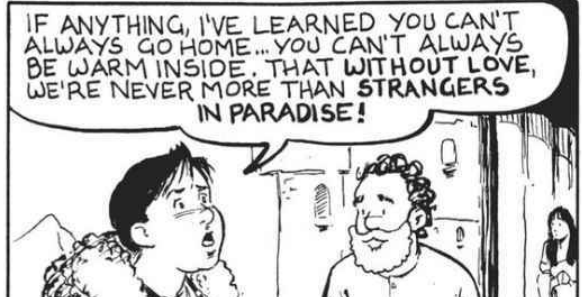
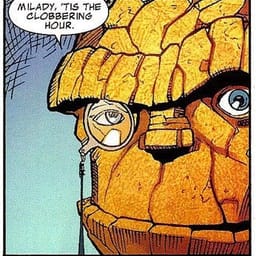
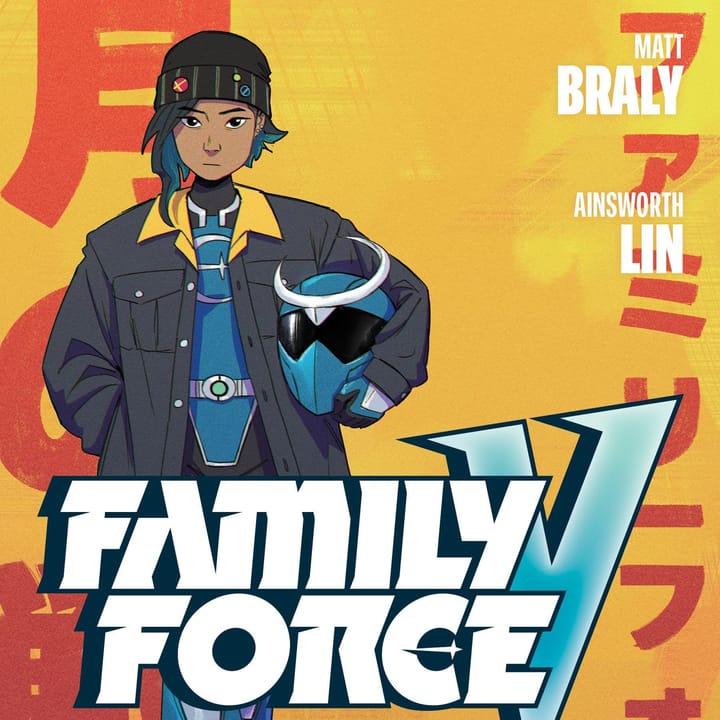
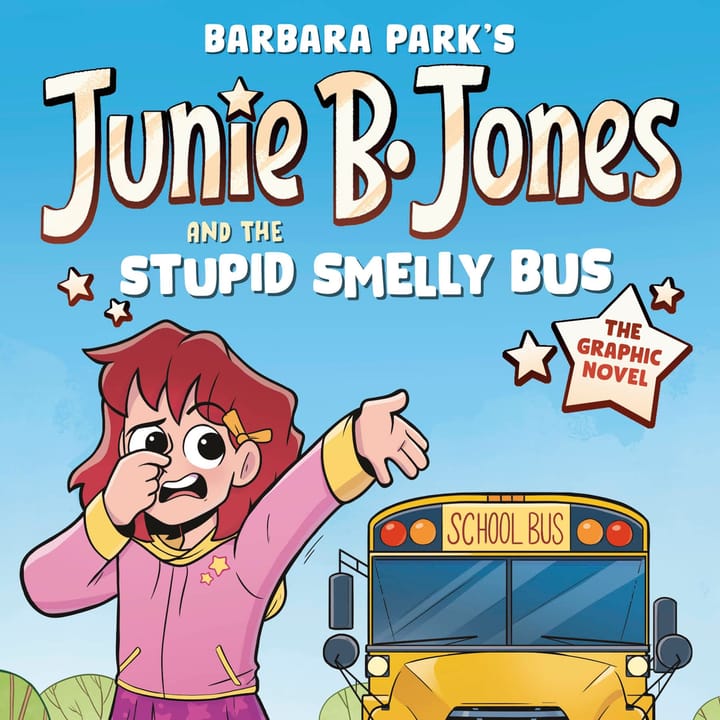
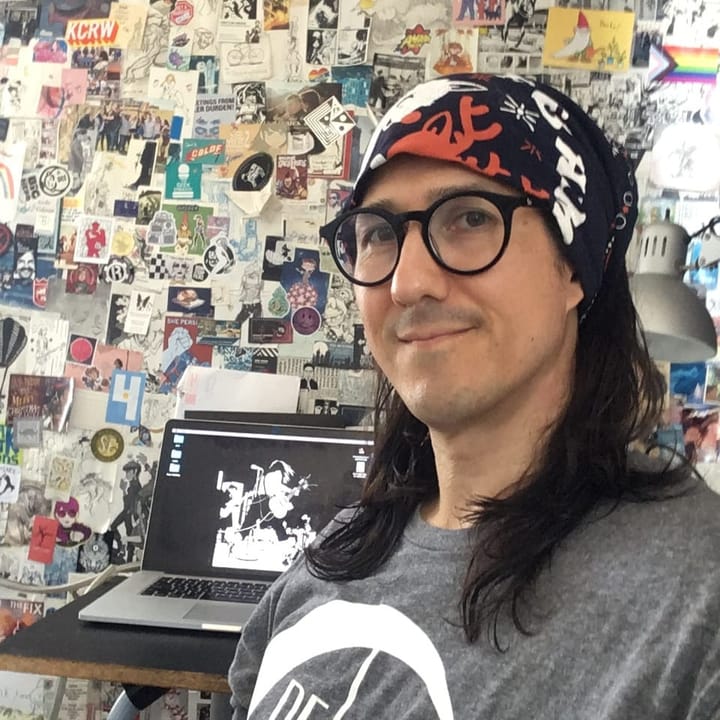
Comments ()